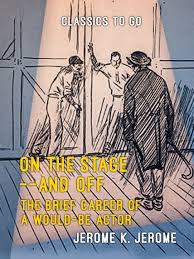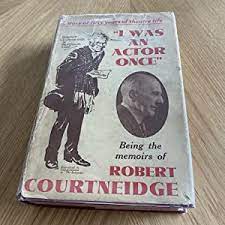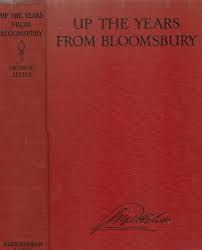I once tried to sell the idea to a newspaper of a series of articles under the title ‘Long-term failures’.
It was intended as the antidote to the notion of the ‘overnight success’: the author whose debut novel had won the Booker Prize, notwithstanding the fact that this was his twenty-fifth novel and it had already been turned down by thirty-nine publishers. Or the actress who was starring in her first film having spent the previous twenty-odd years working steadily if anonymously in theatre and television.
Needless to say no newspaper took up my offer. I suspect it was the title that did it. No one really wants to read about failure, do they?
I was reminded of this while working on my book ‘Theatrical Women’. It’s a random collection of bits of pieces gleaned from my researches into the actors and actresses of Edwardian theatre.
It’s easy enough to find books written about the Greats, such as Ellen Terry or Herbert Tree or Mrs Patrick Campbell. But I really wanted to hear about the people who didn’t make it for one reason or another, or who never reached what we call the big time.
I eventually managed to lay my hands on a few memoirs written by people such as Jerome K Jerome – yes, he had a brief and little-known career as an actor – George Arliss (who did make it), Robert Courtneidge (father of Cicily), Joe Graham, Gertrude Kingston and various others, all describing their early struggles to make a life on the stage. And as I was reading I couldn’t help thinking –
Aren’t stories about failure that much more interesting than tales of success?
Admittedly it was the disasters that particularly intrigued me. The ‘sham’ agents who charged the would-be actor a fortune in return for the promise of a part on the West End, and then vanished. The tour managers who vamoosed at the end of the week with the takings, sometimes having to escape through a window when the actors locked him in his room. The actors who had to walk twenty miles between gigs because their salaries did not cover train tickets. Or who slept under bridges because no landlady wanted a bar of them. (Often understandably: either they drank away the week’s takings in lieu of rent, or they were victims of the unscrupulous or inefficient manager who couldn’t afford to pay them in the first place.) The elderly – usually -actors who set themselves up as elocution and acting teachers and, as George Arliss remarked, taught their students to speak in a manner never heard before on stage or off.
Of course those are not so much failures as struggles, the sort of obstacles every young person encounters early in her or his career, only worse, much worse. The point is these people persisted, despite starvation, humiliation, rejection and near destitution, and while some of them went on to better things many of them did not.
But isn’t there something fascinating, and heartening, about the person who persists? Who is still trying to pass his driving test after a dozen failures? Who still participates in athletic competitions even when they are past their best? Who is still determined to find a distributor for their film after thirty years of trying?
I don’t find these people pathetic, far from it. In many senses I regard myself as one of them. Persistence, no matter what profession you pursue, is not just a virtue, it’s a necessity. I once met a film producer whom I won’t name who achieved huge success despite in my view having no talent whatsoever. When I got to observe him working I realise what he lacked he made up for, several times over, with persistence. He would not take no for an answer.
So here’s to all the long-term persisters – I won’t call them failures. It takes guts to be a persister, and a certain self-belief that is entirely endearing. Not to mention the huge lessons we learn, and keep on learning, along the way.
May we rejoice in never achieving our goals.



